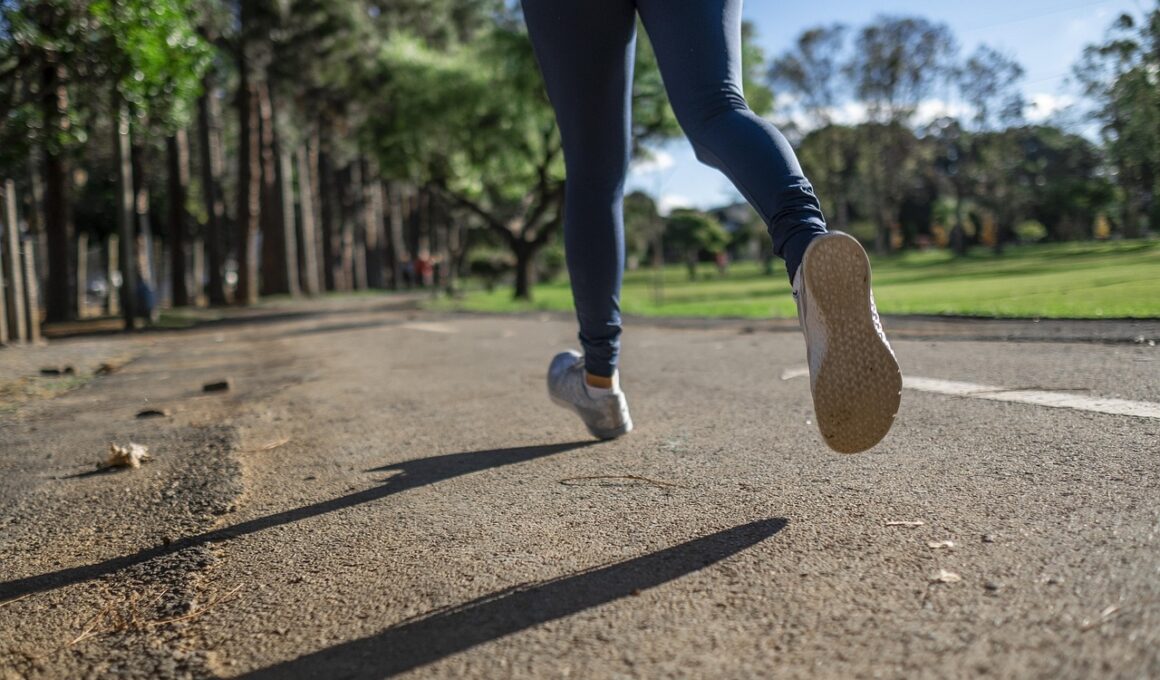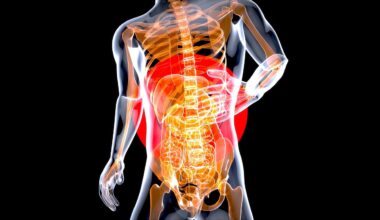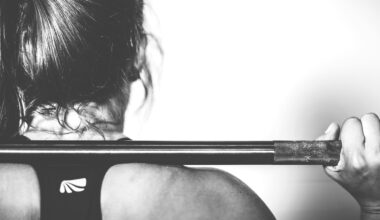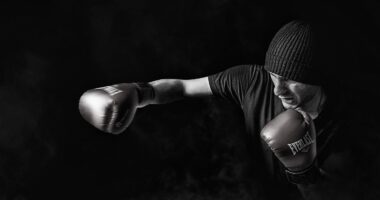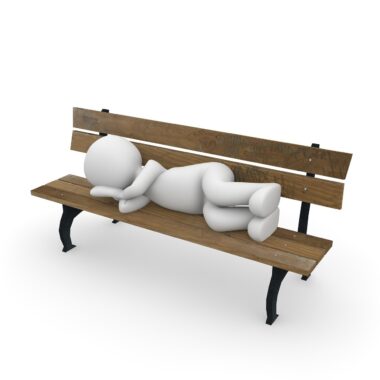Using Sleep Technology to Improve Triathlon Performance
Triathletes are constantly searching for methods to enhance their performance. Sleep is a crucial aspect of recovery that is often overlooked. Interestingly, technology can play a pivotal role in optimizing sleep quality. Devices such as sleep trackers offer valuable insights into sleep patterns and stages, helping athletes identify areas needing improvement. By analyzing data on sleep duration, quality, and interruptions, triathletes can fine-tune their pre-sleep routines and overall recovery strategies. Additionally, these trackers can monitor heart rate variability, which provides a deeper understanding of recovery status. This awareness allows for more targeted training programs that can lead to better performance outcomes. A good night’s sleep has been associated with improved cognitive function and physical performance. Hence, keeping tabs on sleep data is essential for any serious triathlete. The future of triathlon training might just hinge on how well athletes can leverage sleep technology. Keeping a holistic view of training that includes sleep can pave the way for improved race results and overall performance. It is now more possible than ever for athletes to reach peak physical capabilities by simply focusing on their sleep habits.
A key factor to performance in triathlon is understanding how sleep affects the body. During sleep, the body undergoes critical processes that repair muscles and restore energy levels. Sleep technology can monitor these processes, giving insights that were previously unattainable. Athletes can track their sleep cycles and receive real-time feedback, enabling them to optimize sleep schedules according to training demands. Educating oneself on sleep hygiene is equally important. This includes establishing a routine, creating a sleep-friendly environment, and avoiding stimulants before bedtime. An appropriate sleep setting equipped with temperature control and minimal noise can enhance the sleeping experience significantly. Implementing feedback from data gathered by sleep devices allows for more targeted adjustments to routines. Furthermore, integrating techniques such as relaxation exercises can prove beneficial in promoting better sleep quality. By marrying technology to established recovery practices, athletes can see dramatic improvements in their performance. It’s vital for triathletes to prioritize this feedback in their daily routines, emphasizing that an individualized approach to sleep can set them apart from competitors. In a highly competitive field, every small adjustment can yield remarkable results for triathlon athletes.
Various Sleep Technologies Available
Several sleep technology options are available that cater to the needs of triathletes. Wearables have become staples in the fitness world, specifically designed to monitor sleep quality. Devices such as smartwatches and fitness bands keep tabs on how long and how deeply one sleeps. Traditional methods such as sleep diaries can also be supplemented with app technologies that track patterns over time. Additionally, apps available on smartphones offer convenient sleep tracking, along with smart alarms that wake you during lighter sleep stages. More advanced technologies may include bed sensors designed to measure sleep quality without any direct user intervention. These sensors monitor movement and heart rate, providing a comprehensive view of sleep health. Some companies now offer sleep masks that incorporate soundscapes, helping create the ideal sleep environment. Through these tools, athletes can gain deeper insights into their nocturnal habits and preferences, ensuring they can optimize their post-training recovery phases. Understanding which technology best suits personal routines is essential, as each may yield different results depending on the individual’s needs and lifestyle.
Equipping oneself with the right sleep aids can also enhance the quality of rest. For instance, specialized mattresses and pillows designed to support various sleeping positions can greatly impact sleep comfort. Athletes must pay attention to how bedding affects their sleep health, as proper alignment can reduce morning aches. Incorporating blue light-blocking glasses into the bedtime routine can help regulate circadian rhythms, allowing for a smoother transition into sleep. Additionally, aromatherapy products such as essential oils or sleep-inducing scents can create a calming environment conducive to sleep. It’s essential to find a carefully curated combination of tools that work harmoniously together. Complimentary practices like engaging in mindfulness meditation or utilizing breathing techniques can help quiet the mind, preparing the body for a restful night. Each athlete may respond differently to various combinations of sleep technologies and aids. Therefore, experimenting with different options can lead to more significant improvements in performance. Ultimately, increasing the overall quality of sleep is undoubtedly crucial for achieving maximum physical potential. The careful implementation of these tools can create a notable difference in athletic performance when preparing for competitions.
Assessing the Impact on Performance
Monitoring sleep technology’s significance does not end with data collection. Triathletes must assess the direct effects of improved sleep quality on their performance metrics. Keeping an eye on productivity levels during training sessions serves as a good indicator of sleep effectiveness. Performance can be measured through time trials, heart rate, and even perceived exertion. Individuals might find more vitality, improved focus, and lowered fatigue during training or competitions resulting from enhanced sleep health. By correlating sleep data with overall performance quality over time, triathletes can create actionable insights into how sleep influences their capabilities. Moreover, coaching staff should facilitate discussions on sleep patterns and their direct implications for training routines. These collaborative efforts can imbue a culture of accountability regarding rest and recovery, making sleep a top priority in overall training regimens. Triathletes demonstrating a commitment to understanding their bodies and how sleep affects their performance will undoubtedly set themselves up for ongoing success. Promotion of sleep data analysis amongst teams can create a supportive community eager to optimize every training session through sufficient nightly rest.
To maximize the benefits of sleep technology, athletes must remain consistent in tracking and adjusting their sleep patterns. Dedication to a regular sleep schedule can enhance performance not just in training but also during competition. Triathletes should consider implementing a wind-down period before sleeping, turning off devices, and engaging in hobbies that promote relaxation. It’s beneficial to avoid heavy meals or intense exercise right before bed, as these can negatively impact the quality of sleep and recovery. Establishing a strong mental connection between sleep quality and performance outcomes helps reinforce positive habits. Athletes may also experiment with naps during the day to determine if short periods of rest help enhance overall productivity and recovery. These naps, while they should not replace comprehensive nightly rest, can serve as a boost during heavy training periods. As technology advances, the potential for new tools and techniques will continue to emerge, further aiding triathletes in their quests for better performance. It’s essential for athletes to prioritize sleep alongside their vigorous training schedules to achieve a well-rounded approach to performance enhancement.
Conclusion: Emphasizing Sleep in Training Routines
Finally, embracing sleep technology as a foundational component of triathlon training can lead to remarkable performance gains. With a plethora of options available, each athlete needs to explore what works best for their needs and lifestyle. By continuously evaluating sleep patterns and utilizing technological tools, athletes can unlock new dimensions to their training regimens. Acknowledging sleep as a vital factor in recovery should serve as a guiding principle in a triathlete’s journey. The cumulative advantages of consistent and quality sleep are undeniable, resulting in improved focus, endurance, and overall performance. In a sport that demands peak physical and mental capacity, overlooking importance placed on sleep is a step backward. By committing to ongoing improvements in sleep routines and integrating technology thoughtfully, athletes can take their performances to unprecedented heights. Ultimately, a holistic approach to training that prioritizes both performance and recovery will yield the best outcomes, allowing triathletes to excel in competition while maintaining health and wellness. In conclusion, leveraging sleep technology embraces the future of triathlon performance optimization, and every athlete should take this seriously.
Sleep is a crucial aspect of recovering that must not be overlooked. Technology can play a pivotal role in optimizing sleep quality. Devices such as sleep trackers offer valuable insights into sleep patterns and stages, helping athletes identify areas needing improvement.
